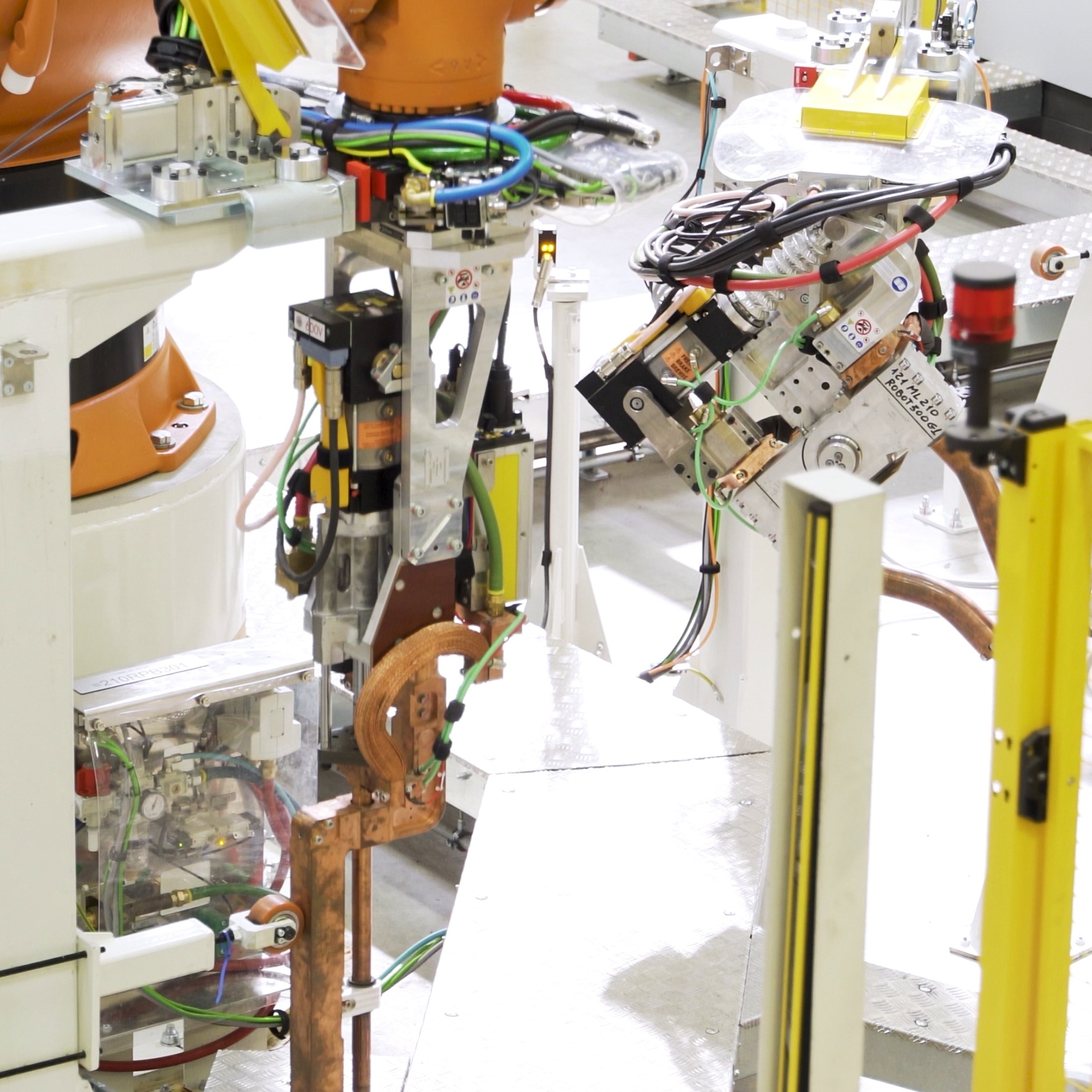Master’s Degree in Mechanical Engineering
Overview
The Master's of Science (MS) degree in Mechanical Engineering (ME) includes a flexible curriculum that can be tailored to fit many potential career paths within mechanical engineering and beyond. A graduate advisor will work with you to plan a course of study that fits your interests. Suggested focus areas for the MS in ME degree are:
Advanced Materials and Manufacturing (AMM)
This focus area builds upon Tulane’s strengths in materials science, nanotechnology, and advanced manufacturing techniques. With rapid advancements in areas such as additive manufacturing (3D printing), composites, and high-performance materials, there is a growing need for engineers trained in the design, processing, and application of next-generation materials. The AMM concentration will equip students with expertise in computational materials science, mechanics of materials, and modern manufacturing techniques, preparing them for careers in industries such as aerospace, automotive, biomedical, and energy sectors.
Thermal Systems (TS)
Thermal systems engineering is fundamental to nearly all mechanical engineering applications, from energy production and transportation to industrial processes and HVAC systems. This focus area will cover advanced thermodynamics, heat transfer, and fluid mechanics, emphasizing the design and optimization of thermal systems such as power plants, heat exchangers, refrigeration systems, and propulsion technologies. Graduates specializing in thermal systems will be well-prepared to work in industries ranging from aerospace and automotive engineering to manufacturing and energy generation.
Sustainable Energy (SE)
With increasing global emphasis on energy efficiency and sustainability, this focus area will provide students with expertise in renewable energy technologies, energy storage, and sustainable design practices. Topics will include solar power, fuel cells, battery systems, energy-efficient buildings, and carbon reduction strategies. Engineers trained in sustainable energy will contribute to the transition toward cleaner energy solutions, addressing critical challenges in global energy demand.
Resources
Graduates of the ME Master’s program will be well-prepared for leadership roles in a variety of industries, including:
• Aerospace and Defense (aircraft propulsion, thermal control, space systems)
• Automotive and Transportation (electric vehicles, fuel efficiency, propulsion technologies)
• Energy and Power Generation (renewable energy, power plants, thermal energy storage)
• Advanced Manufacturing (additive manufacturing, materials processing, nanotechnology)
• HVAC and Refrigeration Systems (building energy efficiency, thermal comfort systems)
• Biomedical Engineering (prosthetics, medical devices, biomechanics)
• Research Institutions and Academia
Graduating master’s students in Mechanical Engineering at Tulane University are expected to possess a solid foundation of knowledge, skills, and abilities. The Tulane Master’s in ME program offers a robust curriculum with core fundamental courses and flexibility for individual interests. Students can choose between two paths:
1. Non-Thesis Route: This is the default route and requires the students to complete 30 credits of coursework from the approved curriculum.
2. Thesis Route: A student may opt for the thesis route only if they are able to secure a faculty supervisor who agrees to supervise their thesis. The thesis route requires the students to complete 24 credits of coursework from the approved curriculum and a 6-credit research thesis supervised by a Tulane SSE faculty member. The thesis must be based on original research and approved by a committee of at least three members, including the research supervisor and at least one other full-time SSE faculty member. One committee member can be from another Tulane school or an appropriate outside institution. Approval of the research topic and committee from the Mechanical Engineering Graduate Advisor and consent from all committee members are required before embarking on the thesis.
The approved coursework for the Tulane ME Master’s degree is from the following lists. Students must complete a degree plan listing all proposed courses, either selecting one of the below focus areas or creating a custom plan, to be reviewed and approved by the Mechanical Engineering Graduate Advisor before the first day of classes at the start of their program. Students will be advised to ensure that they can complete the program in their target time period, based on the current frequency of course offerings.
Advanced Materials and Manufacturing (AMM) Focus Area Course List
• MECH 6010: Mechanical Finite Element Analysis
• MECH 6430: Materials and Process Selection
• MECH 6410: Manufacturing Processes
• MECH 6110: Machine Design
• MECH 6420: Advanced Manufacturing
• MPEN 6390: Synthesis of Nanomaterials
• MPEN 6290: Computational Materials Science and Engineering
• MPEN 6720: Mechanical Behavior of Materials
• CENG 6890: Polymer Engineering & Science
• MPEN 6620: Microfabrication and Nanotechnology
Thermal Systems (TS) Focus Area Course List
• MECH 6010: Mechanical Finite Element Analysis
• MECH 6250: Analysis and Design of Thermal Energy Systems
• MECH 6220: Advanced Fluid Mechanics
• MECH 6240: Compressible Flows
• PHYS 7100: Statistical Mechanics
• CENG 7320: Advanced Transport Phenomena
• MPEN 6760: Thermodynamics of Materials
• CENG 6760: Energy and Sustainability
Sustainable Energy (SE) Focus Area Course List
• MECH 6010: Mechanical Finite Element Analysis
• MECH 6430: Materials and Process Selection
• MECH 6250: Analysis and Design of Thermal Energy Systems
• MECH 6110: Machine Design
• CENG 6760: Energy and Sustainability
• MPEN 6380: Materials for Energy
• CENG 7320: Advanced Transport Phenomena
Additional Engineering Course List
• MPEN 6360: Structure of Materials
• PHYS 6180: Introduction to Feedback Control and Control Theory
• CENG 6130: Surface and Colloidal Phenomena
• RCSE 6010: Water Resources Engineering II
• PHYS 7060: Theoretical Mechanics
• BMEN 6060: Biomedical Acoustics
• BMEN 6310: Continuum Models In BMEN
• BMEN 6630: Cell Mechanics
• BMEN 6650: Biomechanics and Biotransport
• BMEN 6790: Design Studio
• BMEN 6970: TRIZ Theory of Inventive Design
Math Course Option: Students may be interested in acquiring or enhancing mathematics skills by enrolling in courses offered by the Mathematics Department. ME master’s students may take one graduate level MATH course at Tulane, with the approval of the ME Graduate Advisor, to fulfill up to 3 credits towards their ME Master’s degree.
Commercialization and Policy Course Option: Students interested in technology entrepreneurship, commercialization, and policy may complete up to two of the following courses, or other similar courses with approval of the ME graduate Advisor, to fulfill up to 6 credits towards their ME Master’s degree.
• ENRG 7100: Energy Markets, Institutions & Policy
• ENRG 7120: Energy Data Analysis
• ENRG 7200: Energy Fundamentals and Trading
• ENRG 7840: Energy Industry Projects
• ENRG 7860: Renewable Energy Project Development & Finance
• MGMT 6160: New Venture Planning
• MGMT 7210: Management of Technology and Innovation
• SCEN 6000: Entrepreneurship in Engineering and Bioscience
• BMEN 6080: Technology, Invention & Commercialization
Other current and future graduate-level SSE courses, including ones designated as EES, RCSE, BMEN, CENG, CHEM, CMPS, ELEN, MCEN, MPEN, and PHYS, may be suitable electives for ME Master’s students, with approval from the Advisory Committee.
GPA Requirement: A GPA of 3.0 is required at graduation. Courses receiving less than B- will contribute no credit toward the master’s degree requirements.
No undergraduate major will be specified for admission. Applicants must have completed at least 24 credit hours in science and engineering (3.0 GPA or higher). Adequate background coursework in mathematics, mechanics, dynamics, thermodynamics, and heat transfer is essential. Provisional admission with required remedial coursework is possible. Students who have not taken the requisite introductory course work will be required to pass such courses without credit towards the graduate degree to make up for this deficiency. Applicants who have not taken the requisite introductory coursework can be accepted if they have passed the Fundamental Engineering (FE) exam in mechanical engineering. Students must submit a transcript, a personal statement, at least one recommendation letter, and proof of proficiency in English (undergraduate degree from a program in which English was the language of instruction, TOEFL, or any equivalent standardized score).
In addition to the above requirements, Tulane 4+1 students must have at least a minimum grade of B in Mechanics of Materials (ENGP 2430) and Thermodynamics (ENGP 2120) or equivalent, and their recommendation letter must be from a Tulane SSE faculty member. 4+1 students will normally indicate their intention to pursue the program before the end of their third year at Tulane and will complete between 6 and 12 credits of coursework towards the MS degree by the end of the fourth year. Six of these credits can count simultaneously towards the credits required for the bachelor’s degree.
Students admitted to graduate programs are admitted specifically into either the terminal MS or a PhD program. A student admitted to the ME Master’s program should not assume admission to a departmental PhD program. A separate application is required for admission to any PhD program for a student to be eligible to work toward the PhD degree. If accepted, coursework from the master’s program can be applied towards the PhD degree, subject to approval by the department overseeing the PhD.
Please use the Online Application System to apply for the program.
| Accept | Reject |
Academic background (GPA) |
|
|
Academic background (Major) |
|
|
For international candidates from non-English speaking universities/countries:
|
|
|
For Tulane 4+1 applicants:
1. They must be attending/have attended any Tulane undergraduate program with GPA 3.0 or higher
2. They must provide proof they received a B or higher in the following core preparatory course(s), depending on which MS program they are applying to:
Mechanical Engineering applicants: ENGP 2430 Mechanics of Materials and ENGP 2120 Thermodynamics
*Faculty contact person for all questions: Prof. Ahmad Majed
Flexible Paths to a Tulane Master’s in ME Program
The program accommodates various types of students:
• 4+1 Pathway: Available to existing Tulane undergraduates regardless of major.
• Standard Full-Time Master’s: Requiring three to four courses per semester, allowing completion in three semesters.
• Part-Time Master’s: Tailored for working professionals, offering one to two courses per semester. If there is sufficient demand, evening courses may be provided.
Degree requirements are consistent across all study modes (4+1, full-time, part-time). Students who initiate their studies at Tulane as PhD students will not be eligible for the ME Master’s degree.



